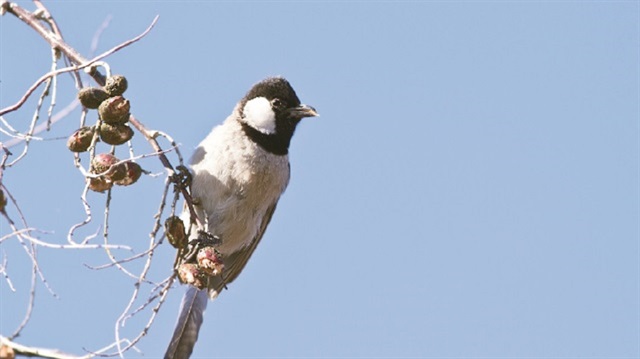
Turkey has become a refuge for the Syrian birds and people fleeing the Syrian civil war, hosting over 2.7 million Syrians and over 3 million white-cheecked bulbuls
The raging civil war in Syria has left 13.5 million of the 20 million population in desperate need of humanitarian aid.
In 2016, the UN identified more than 6 million people internally displaced in Syria and over 4.8 million refugees outside of Syria. Over 2.7 million Syrians have found safety and security in Turkey, which is the largest host country.
More than 3 million white-cheecked bulbuls have also migrated, taking refuge in Turkey.
The birds have fled bombs, chemical weapons and burnt and destroyed houses to live and let live in a new home.
Sighted by bird watchers for the first time in Şanlıurfa, a southeastern city near Turkey's border with Syria, the white-cheecked bulbul is now listed among Turkey's 480 species of birds.
Mehmet Mahmutoğlu was the first bird watcher and photographer to spot the white-cheecked bulbul. He believes there are two species of birds which have migrated from Syria due to the conflict.
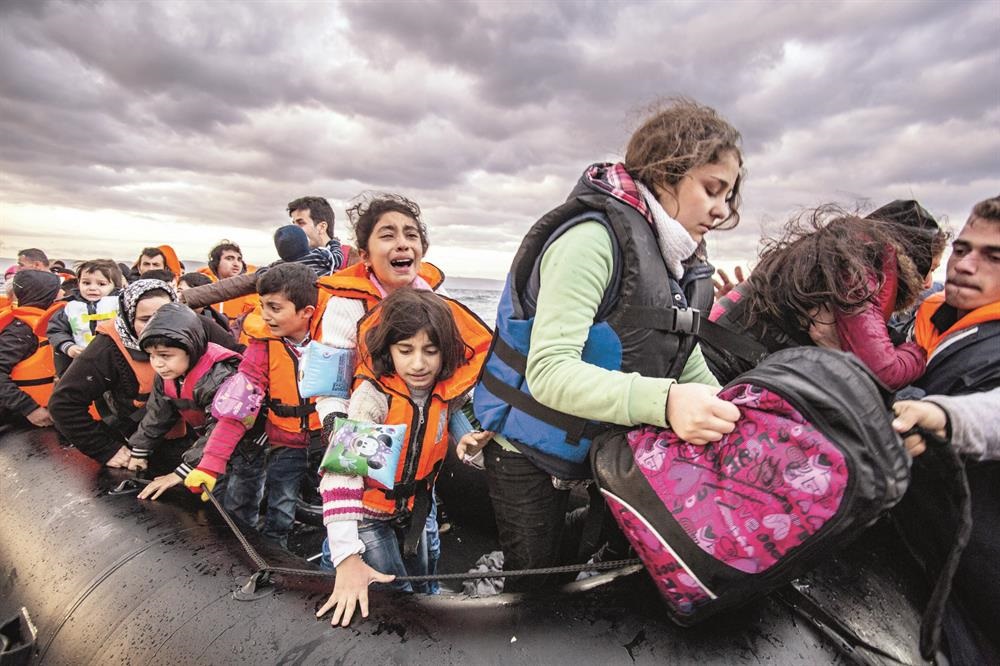
“Just like the people, they too are fleeing the war. In order to include the bird in the nation's list of birds, it must be sighted three years in a row, and three years have passed since the first sighting," said Mahmutoğlu, who has sighted 350 kinds of birds in four years.
During his time as a war reporter in Syria, Mahmutoğlu said that he spotted a great deal of bird movement even outside of migration periods.
“During Iraq's Gulf War, the movement of birds in the region changed. The Iraqi jungle babbler also calls Turkey home," he said.
Europeans have reportedly shown a great interest in Turkey in terms of birdwatching.
“The variety of birds in Turkey is almost equivalent to the variety in Europe. Turkey is part of an important migration route. Anyone who wants to do birdwatching must visit Turkey," said Mahmutoğlu, who recommends that the best time to go birdwatching is early in the morning, as the best poses are captured when they are resting after their breakfast.
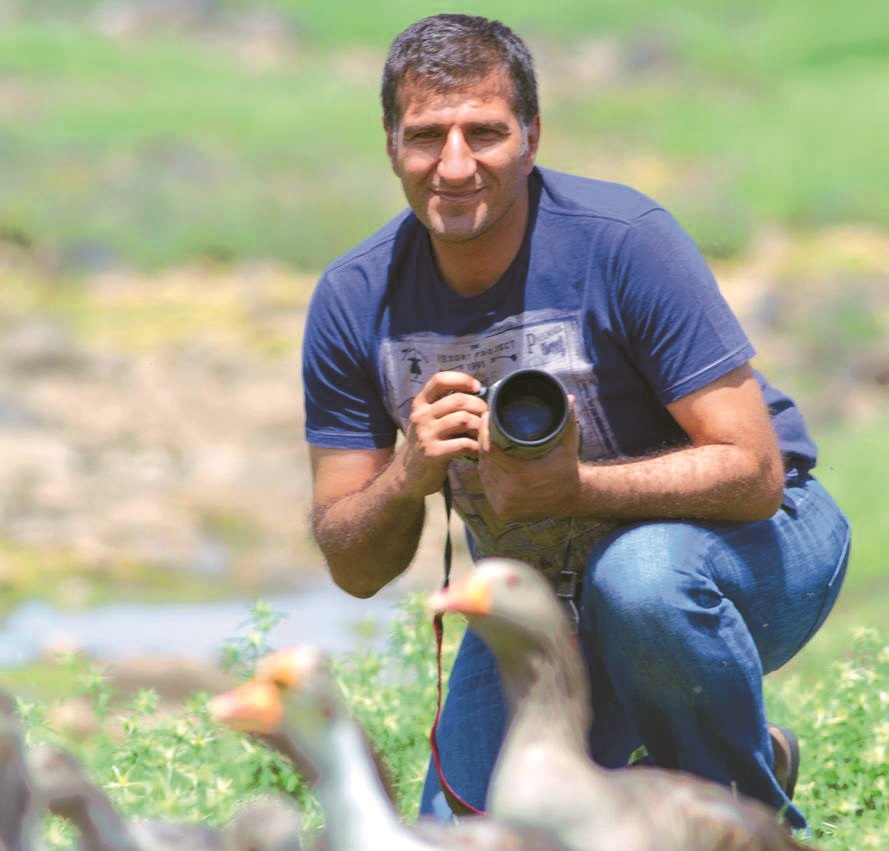
In recent years, birdwatchers have constituted a trend in the tourism industry. Serious birdwatchers are willing to invest in oppurtunities to birdwatch in new locations.
Locals who are able to guide foreign birdwatchers are able to make a profit from this business.
Experts predict that within five years, the industry will reach a significant potential. Industry-wise, it could be more beneficial to host 10 birdwatchers in the place of 1,000 beach-sun-sand tourists.
The job market has already started to form; prior to arriving, birdwatchers and researchers get in touch with guides and local people in the area.
Locals who are able to guide birdwatchers and researchers agree on a price, which, when added to the costs of hotels, transport and food and drinks, provides significant revenue to the tourism industry.
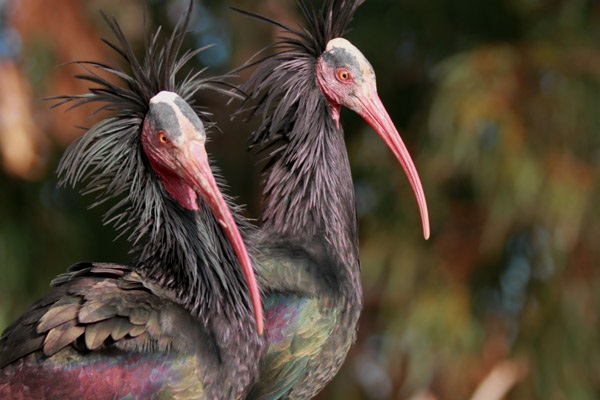
“The northern bald ibis is critically endangered! They are under protection in Morocco and in Urfa's Birecik district [in Turkey]. In this respect, Turkey is an important birdwatching destination because we host such a bird. However, we still do not place enough importance on birdwatching," said Mahmutoğlu.
There are believed to be approximately 500 wild northern bald ibis birds in southern Morocco, and fewer than 10 in Syria amidst the ongoing civil war. Despite protection and breeding programs in Syria, extinction seems unavoidable, as the migratory bird has not returned for at least four years.
The population in Turkey is steadily climbing to upwards of 200.
Mahmutoğlu stressed that birdwatching is not taken seriously in Turkey, and is done as a hobby as opposed to a profession.
“Europeans are very sensitive about birdwatching. They conduct serious research and receive funding," said Mahmutoğlu.
“The sociable lapwing's migration route from Africa to the Caucasus crosses over Turkey, and it is followed for 20 days. The UK provides funding for this, and we report the bird's migration."
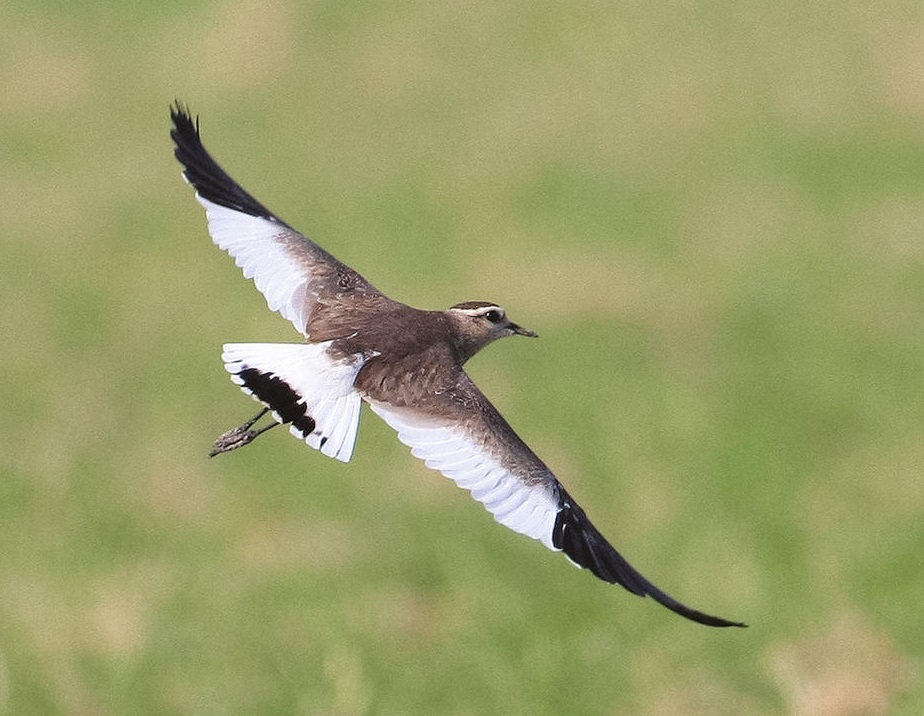
Bulut Bağcı, President of the World Tourism Forum, also expressed that Turkey was attracting international attention for its birdwatching.
“If a tourist is coming to Turkey for Hagia Sophia, the same thing goes birdwatching, because there are birds here found nowhere else in the world," he said.
“Turkey is very rich in this regard. Important [tourism] areas like birdwatching can be analyzed in more depth. Such activities are an opportunity to attract tourists and birdwatchers."
Hello, the comments you share on our site are a valuable resource for other users. Please respect other users and different opinions. Do not use rude, offensive, derogatory, or discriminatory language.
The floor is all yours.











